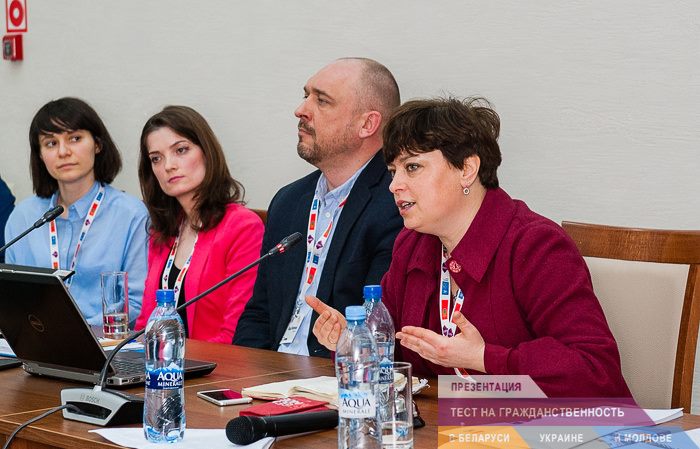How does civil society develop in Ukraine, Belarus, and Moldova? How does the difficult legacy of the Soviet period affect the formation of civic values? Participants in an international conference on “Civil Society in Ukraine, Belarus and Moldova” have tried to answer these questions. The conference, based on the results of research held in these countries, have taken place in Minsk on 15 March 2017. The research program was commissioned by Pact, an international nonprofit organization, and United Nations Development Program (UNDP) in Ukraine with the assistance of the Danish Ministry of Foreign Affairs in 2016.

In her opening address at the conference in Minsk, Yulia Tyshchenko, the Head of the Democratic Processes Support Program of the Ukrainian Center for Independent Political Research (UCIPR), stressed: “Despite the differences, social ambivalence is common for Ukraine, Moldova, and Belarus. It is very traditional for Ukraine. For instance, we strive for an open market on the one hand, and paternalism on the other. This social ambivalence, which we inherited from our Soviet past, affects the attitude of people towards civic participation in the life of the country, and the exercise of their rights. Citizens of the three countries share an opinion that they cannot change things or significantly influence the situation. I think it is very important to understand the reasons behind this phenomenon.” In Ukraine, she said, this is largely due to a certain social fatigue and disappointment because the expectations of reforms and political decisions after the Maidan were too high compared with minor current changes amid political crises in the country.
Meanwhile, according to the research, unlike Belarusians and Moldovans, Ukrainians consider their participation in elections to be important. “While more than 80% of Ukrainians do not know their deputies, they however believe that participation in elections gives them a chance to make changes in the country. Another manifestation of theses paradoxes in social thinking is that despite Ukrainians are tired and, in the opinion of most of them, do not influence the life of the country, some 70% of respondents either participate in volunteer activities or help volunteers. The do-it-yourself ideology is developed in Ukraine,” the UCIPR expert noted.
She continued: “A civic stance is not only behavior, but also values, on which society agrees in order to determine its behavioral reactions. It is very important to pay attention to such value in Ukraine as social justice, which is not typical for Moldova or Belarus. Although the notion of social justice may be interpreted differently in Ukraine, it determines certain motivations, actions, and rhetoric.”
In the opinion of Yulia Tyshchenko, dialogue and communication are needed in the three target countries to identify and rationalize issues associated with civic values.
